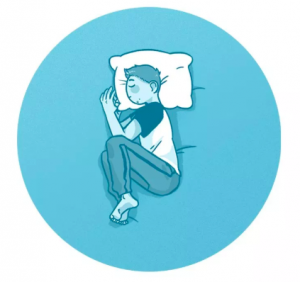
A, B, C… Vitamin D! Here we are highlighting the most important facts about Vitamin D in your body, and why it is so important to get your 10 min daily dose of sun exposure (sunscreen advised of course)!
Who is at risk?
- People who do not get enough time in the sun
- People who avoid dairy products
- People who have a plant-based or vegan diet
- People with inflammatory bowel disease and other conditions causing fat malabsorption
- Breast feed infants: humans do not produce enough vitamin D in their milk for dietary needs.
- People with dark skin: More melanin pigment in the epidermal layer result reduces the skin’s ability to produce vitamin D from sunlight.
- People who are obese or who have undergone gastric bypass surgery: greater amounts of subcutaneous fat sequester more of the vitamin and alter its release into the circulation. Obese individuals who have undergone gastric bypass surgery may become vitamin D deficient over time without a sufficient intake of this nutrient from food or supplements, since part of the upper small intestine where vitamin D is absorbed is bypassed and vitamin D mobilized into the serum from fat stores may not compensate over time
- People with inflammatory bowel disease and other conditions causing fat malabsorption: Vitamin D is a fat-soluble vitamin, so its absorption depends on the gut’s ability to absorb dietary fat. People with a reduced ability to absorb dietary fat due to liver disease, cystic fibrosis, celiac disease, and Crohn’s disease, steroid use, as well as ulcerative colitis might require vitamin D supplementation.
What does it do?
When sunlight or UV rays hit our skin Pre-Vitamin D is converted into Vitamin D, the usable and active form of the vitamin that helps facilitate Calcium absorption. Vitamin D can also be obtained from food, and supplements are biologically inert and must undergo two hydroxylations in the body for activation.

What happens if you don’t get enough?
- Vitamin D deficiency is associated with rickets, a disease where bone tissue doesn’t mineralize, leading to bone softening and skeletal deformities.
- Vitamin D also helps protect older adults from osteoporosis.
- Vitamin D can prevent irregular cell growth, neuromuscular and immune function
- Vitamin D also plays a role in reducing inflammation.
Common symptoms:
- Increased risk of death from heart disease
- Cognitive impairment in older adults
- Muscle weakness
- Severe asthma
- Increased Cancer risk
What can happen if you have too much?
- Vitamin D toxicity signs:
- anorexia
- weight loss
- polyuria
- heart arrhythmias
- Increased blood levels of calcium, this can lead to vascular and tissue calcification, and eventually heart, blood vessel, and kidney damage.
Where is it found?


How much Vitamin D should you take in a day?







